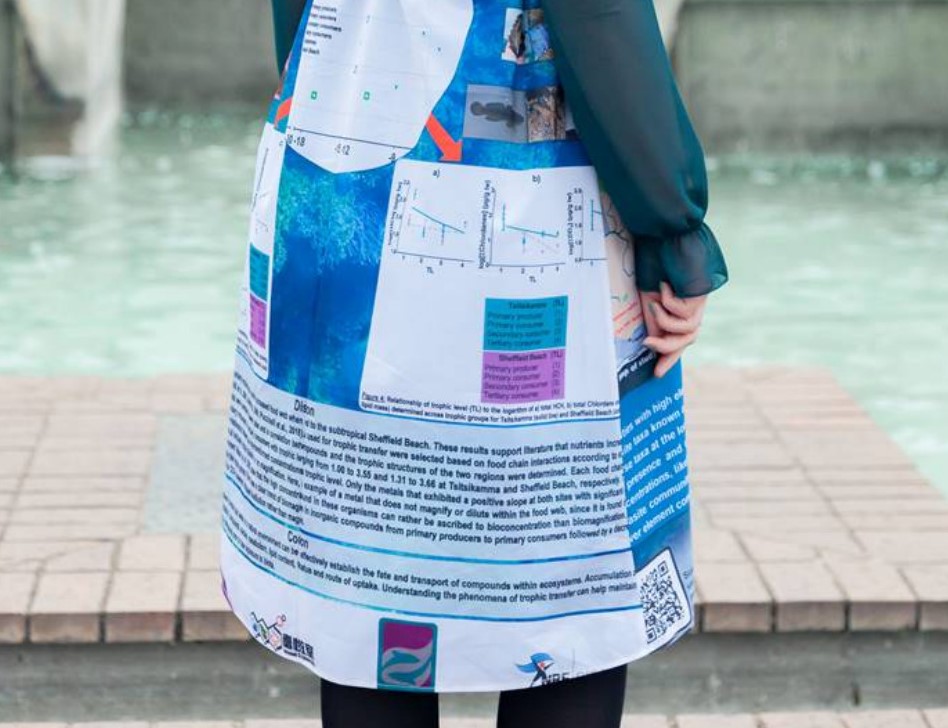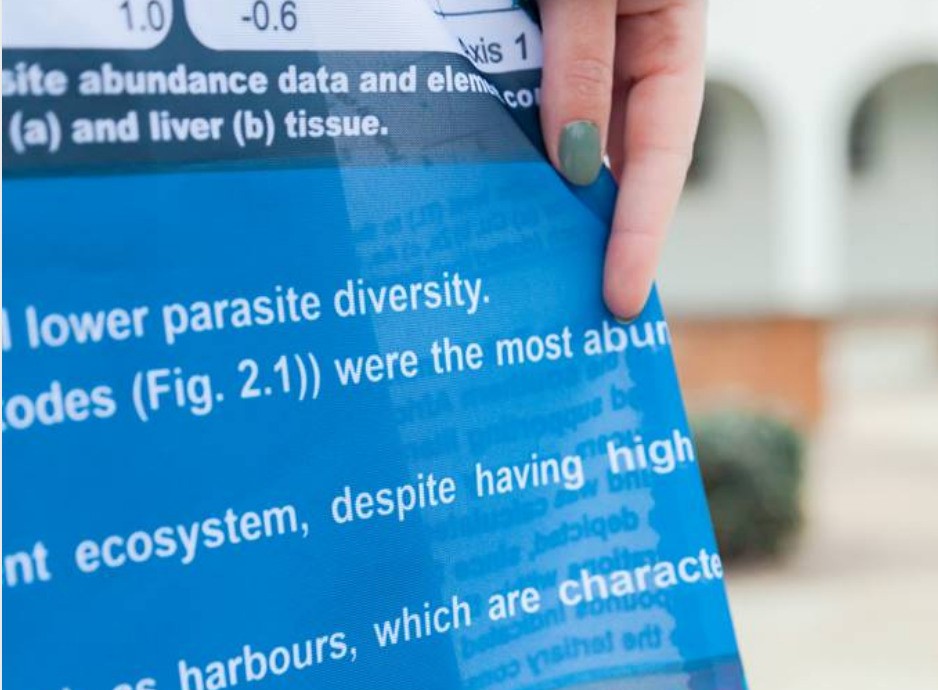The famous French fashion designer Coco Chanel said to be irreplaceable, one must always be different and that was definitely the case when Dr Anja Erasmus received her PhD in Environmental Science on 29 July 2022. She stood out by wearing a dress with her research printed on it.
Her journey at the NWU started in 2012 where she enrolled for her BSc degree in Tourism, Zoology, and Geography. She went on to obtain her Honours degree in Biodiversity and Conservation Ecology in 2015 and her Master’s degree in Environmental Sciences in 2017.
She has also been part of the Water Research Group within the NWU’s Unit for Environmental Sciences and Management since 2015.
It was a joyous and emotional moment for Anja when she walked onto the stage, but it was her dress that started conversation at the after-ceremony lunch.
The imagery printed on her dress included logos of the NWU, the National Research Foundation and the NWU Water Research Group, the names of her supervisors as well as her research from her conference papers.
“During the first year of my PhD in 2018, I designed a paper poster for the Unit for Environmental Sciences and Management’s Prestige PhD Conference with stained blood cells in the background.”
Then, during the Society of Environmental Toxicology and Chemistry Conference in Copenhagen, Denmark, they printed the posters on environmentally friendly fabric with which they could travel easily.
Anja experienced a light bulb moment when her supervisor pointed out that it would be special if these posters could be repurposed so that someone could wear them during a conference.
“I asked my mother, a sewing enthusiast, to make my PhD graduation dress from my poster material and she took up the challenge.”
Her mother, Carien, brought the dress all the way from the Western Cape and arrived in Potchefstroom the day before the graduation ceremony.
Anja’s thesis is titled “An environmental parasitological approach to marine metal pollution: The endemic South African intertidal klipfish, Clinus superciliosus, as model organism”, and her supervisors were Prof Nico Smit, Prof Victor Wepener, Prof Bernd Sures and Dr Kerry Malherbe.
“I assessed elemental concentrations in Clinus superciliosus from various localities along the South African coast. I also conducted a full parasitological investigation and found an astounding 43 species infecting this host fish.”
Parasite identification was done using scanning electron and differential interference contrast microscopy, as well as molecular techniques. This research contributes fundamental knowledge on the occurrence and distribution of parasites which can contribute to the conservation of species in the future. The thesis highlights the need for ecological studies considering the life cycles or parasites within the aim to better understand ecosystem services.
She thanks her husband, Dr Hannes Erasmus, her parents as well as her family and friends for their ongoing support and encouragement. She also acknowledges the National Research Foundation (NRF) for funding her during her PhD studies, and her supervisors for all the opportunities they provided during her studies.
“I feel very blessed to be able to contribute to our knowledge of the environment and I am glad to have had this experience”.
Anja has assumed a postdoctoral fellowship in environmental parasitology at the Water Research Group.
She is currently working on publications from some of the parasite species that they collected during her PhD studies, contributing to a global project on gnathiid isopods, as well as on the data management of their specimen collection that has been obtained over the last few years.
This entails species descriptions, georeferencing of spatial data, and the mobilisation of sample data.


The printed imagery on the dress.
Photos supplied by NETWERK 24
